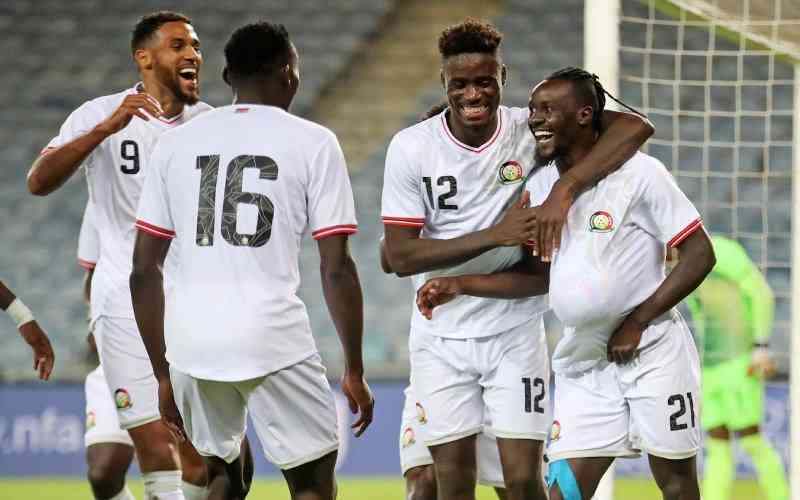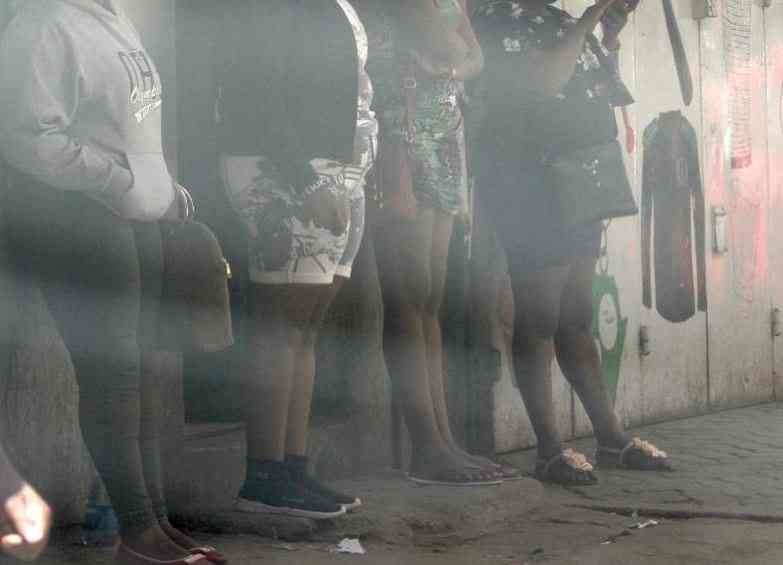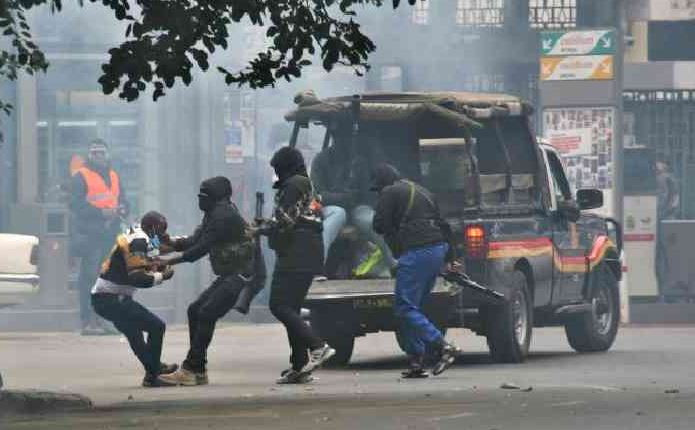
Kenya’s Harambee Stars find themselves at a pivotal moment in their quest to qualify for the 2025 Africa Cup of Nations (AFCON) in Morocco.
After two matches in the qualifying campaign, Kenya has accumulated four points, tying at the top of Group J with five-time African champions Cameroon.
This early phase of the qualifiers has been marked by both frustration and hope, with Kenya alternating between tactical missteps and crucial victories.
A double-header against Cameroon looms ahead, which could ultimately determine the nation’s chances of returning to AFCON for the first time since 2019.
Kenya’s campaign began with a frustrating 0-0 draw against Zimbabwe. It was a game that left many fans and pundits perplexed, particularly due to head coach Engin Firat’s decision to play without a natural striker.
The absence of Michael Olunga, Kenya’s star forward, due to injury was a significant blow, but Firat’s tactical choices further complicated the situation.
Instead of fielding one of the available strikers on the bench—John Avire, Benson Omalla, or Jonah Ayunga—Firat opted to start attacking midfielders Duke Abuya and Eric Johana as makeshift forwards. The move backfired spectacularly.
Without a true target man, Kenya lacked penetration in the final third, and their attack seemed toothless. Zimbabwe, a team ranked lower than Kenya, was able to contain the Harambee Stars with relative ease, and the match ended in a goalless draw.
Firat defended his tactics, explaining that he wanted to exploit Zimbabwe’s defenders, whom he believed were physically strong but lacked speed.
However, his strategy didn’t pay off, and fans were left questioning why he didn’t adapt sooner. The draw was met with widespread criticism, with calls for Firat’s dismissal growing louder. Former players and coaches weighed in, and social media buzzed with discontent.
It was a match that Kenya was expected to win, especially considering Zimbabwe’s struggles, yet Firat’s decision to abandon a traditional striker left many wondering if Kenya would be able to recover in time for the tougher fixtures ahead.
That recovery came swiftly in the form of a crucial 2-1 victory over Namibia just days later. In that match, Firat made the necessary adjustments, fielding John Avire as the focal point of Kenya’s attack, and the difference was immediately apparent.
Avire, a natural striker, provided the cutting edge that had been sorely missing in the Zimbabwe match. His goal, combined with Duke Abuya’s strike, propelled Kenya to a much-needed win. The victory not only revived Kenya’s chances in the group but also restored some faith in Firat’s leadership.
It was the first time Kenya had ever won away against Namibia, and it came at a crucial moment. The lesson was clear: Kenya’s attack is far more dangerous when they play with a proper forward, and Firat’s decision to revert to a more traditional formation paid off.
Now, as Kenya prepares for their upcoming double-header against Cameroon, the stakes couldn’t be higher. Cameroon, with their formidable defense and history of success in African football, presents a daunting challenge.
However, Firat remains defiant, insisting that Kenya is capable of taking on the Indomitable Lions. In his post-match comments after the Namibia win, Firat exuded confidence, pointing to Kenya’s unbeaten run this year and their unity as a team.
He acknowledged that injuries had taken a toll on his squad, particularly with the loss of two key center-forwards, but he expressed hope that the team would be at full strength by the time they face Cameroon.
While the tactical adjustments on the field are crucial, Firat’s challenges extend far beyond the pitch. Kenya’s football infrastructure has long been plagued by issues, and Firat has not shied away from expressing his frustrations.
The coach has not been paid for nine months, a situation he described as untenable. "I am not okay," Firat said, clearly frustrated with the lack of financial support. "If you don't pay the coach for nine months, not even one dollar, then what do you want?"
In addition to the financial struggles, Kenya’s lack of a FIFA-accredited stadium means that their home matches must be played abroad, denying them the full advantage of home support.
Firat lamented the absence of Kenyan fans at their recent match in Uganda, where the turnout was disappointingly low despite expectations of a larger crowd.
Despite these off-field issues, Firat remains optimistic about Kenya’s chances of qualifying for AFCON 2025. The group remains wide open, with Zimbabwe trailing with two points and Namibia yet to register any.
The upcoming matches against Cameroon are critical, and Firat knows that a strong performance in these fixtures could put Kenya firmly in control of their qualification destiny. Kenya’s defense must remain disciplined, particularly against a team like Cameroon that thrives on capitalizing on mistakes.
Firat has emphasized the importance of a full-strength squad, and the return of key players from injury will be essential in mounting a serious challenge.
Beyond the immediate challenge of Cameroon, Kenya also faces Zimbabwe and Namibia in the remaining fixtures. A draw against Zimbabwe in their next meeting could suffice, but a win would almost guarantee Kenya a spot in the AFCON finals.
Namibia, currently at the bottom of the group, will be Kenya’s final opponent, and it’s a match that Kenya should be confident of winning, particularly if they are still in contention for qualification at that stage.
To qualify for AFCON 2025, Kenya must maintain the tactical consistency that proved effective against Namibia. Firat’s experiment with playing without a striker against Zimbabwe was a gamble that failed, but the team’s response in the next game showed that they can adapt and thrive when playing to their strengths.
Kenya’s defence, which has held firm so far, will be tested by Cameroon, but a disciplined and united performance could see them secure vital points.
Additionally, the team must find a way to rise above the off-field distractions, including financial instability and lack of support, to keep their focus on the task ahead.
With four matches remaining in the group, Kenya’s path to AFCON is still within reach. The double-header against Cameroon will be decisive, but if Firat can field a strong squad and the team continues to perform with the same resilience they showed against Namibia, the Harambee Stars could very well defy the odds and book their place in Morocco.
Despite the challenges, the team’s belief in each other and their ability to deliver in difficult conditions could be the key to their success.
Now, all eyes will be on Kenya as they prepare for what could be the defining moment in their AFCON 2025 qualifying campaign.
 The Standard Group Plc is a multi-media organization with investments in media platforms spanning newspaper print
operations, television, radio broadcasting, digital and online services. The Standard Group is recognized as a
leading multi-media house in Kenya with a key influence in matters of national and international interest.
The Standard Group Plc is a multi-media organization with investments in media platforms spanning newspaper print
operations, television, radio broadcasting, digital and online services. The Standard Group is recognized as a
leading multi-media house in Kenya with a key influence in matters of national and international interest.











